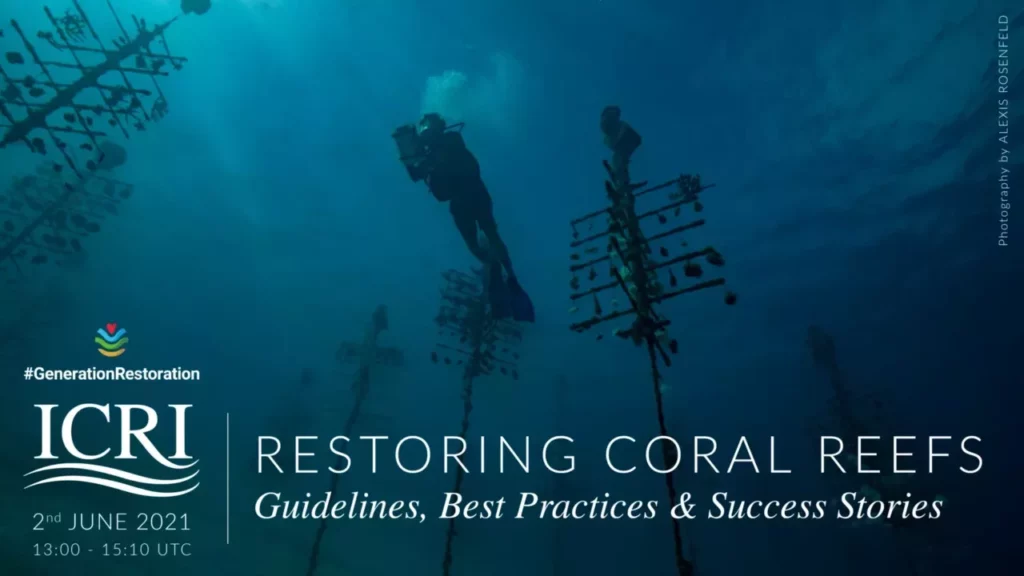Since the 1980’s, 50% of all coral reefs have been lost, and with the recent International Panel on Climate Change (IPCC) reporting up to 90% of remaining coral reefs could be lost by 2050, the need for coral reef restoration efforts is accelerating and the next ten years are vital.
In response to the need for reef restoration best practice and guidelines to ensure efficacious application, and in support of the UN Decade on Ecosystem Restoration, the International Coral Reef Initiative (ICRI), hosted a virtual event focusing on the restoration of coral reefs on 2nd June 2021, moderated by Dr Jennifer Koss, Director of NOAA Coral Reef Conservation Program. In total, ICRI received over 850 registrations for the event and welcomed over 350 participants across Zoom and YouTube.

The event was guided by three themes: Guidelines & Tools for Restoration; Case Studies & Success Stories; and Research & Development. Leading experts navigated the highly valuable strategy of restoration, presenting the current best-practice methods of application, examples of how it has been applied in the field from the Caribbean to Japan, including the Plant a Million Corals Foundation, and the emerging techniques and future of coral reef restoration with sessions from Mission Iconic Reefs, the Reef Restoration and Adaptation Programme and MOTE Laboratory.
The presenters were joined by high-level speakers with welcoming remarks from Ambassador Peter Thomson, UN Secretary-General’s Special Envoy for the Ocean, and The Rt Hon Patricia Scotland QC, Secretary General for the Commonwealth, accompanied by H.S.H Prince Albert II of Monaco to close the event.

A key message resonated; there is still hope, but our window to act is closing. Restoration must be used in a continuum of activities that address and reduce the current threats faced by coral reefs. The health of the Ocean and the natural world are intrinsically linked with the health of coral reefs and thus protecting and restoring these highly valuable ecosystems is a societal imperative.
Rewatch below or visit the dedicated webpage to download key resources and the agenda